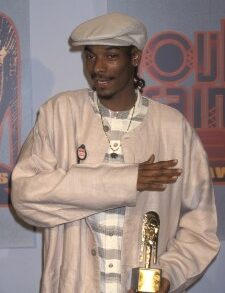If there was a common thread in the outsize life of retail visionary and civic leader Wayland Henry Cato Jr., it may well have been his passion for vast enterprises.
Whether creating a national fashion empire in The Cato Corporation, serving his community, managing his swell of children or taking on epic terrain in far reaches of the world, Cato’s mantra could well have been: the bigger, the better.
But while the scale of his manifold achievements is striking, each undertaking was embraced without the slightest hint of ostentation or self-grandeur, and often in the service of family or community. The highly accomplished South Carolinian did so with a singular mix of acumen, sweat equity and joie de vivre — and never in half-measure.
“He lived a life of extraordinary service, giving back to his community, state and nation,” observed Foster Gaillard, noting in particular his friend’s support of education and the arts. “Not only Charleston, but South Carolina and North Carolina lost one of its finest, most civic-minded, most generous, most philanthropic citizens.”
The native of Ridge Spring in Saluda County grew up in Bath and Augusta, Ga. He died Nov. 4 in Charleston, having this year rounded another high mark: the triple-digit milestone of turning 100 years old.
Cato’s retail trajectory was propelled after his return home following his service in the U.S. Navy during World War II. Upon graduating from the University of North Carolina at Chapel Hill in 1944, he attended the Naval Mine Warfare School, then served as a commanding officer of a minesweeper stationed in the stretches of the Pacific theater off the coast of California.
Then in 1946, he joined his father, Wayland Cato Sr. and brother Edgar Thomas in the family business, identifying an opportunity to grow it at a time when women were no longer primarily making their own clothes. The Cato Corporation began establishing stores that offered attainable, fashionable women’s and children’s clothing, facilitated by a personable staff who underwent exacting training devised by Cato, who also fostered career opportunities for those in the ranks who were interested in advancing.
The consummate Southern gentleman, Cato cut a dapper figure in his role at the national, Charlotte-based retail empire. While leveraging his innate business savvy, he dressed the part, too, at times topping off his sharp sartorial choices with a stylish ascot or such. He was as industrious as he was elegant, too, traversing a swath across the Main Streets of humble Southern mill towns to establish and oversee one successful store after another.
As the company’s president and CEO, he possessed the foresight to shift with the times, moving from Main Street to the shopping centers as consumer trends evolved, vouchsafing continued vitality while other retailers foundered. Today, The Cato Corporation holds strong with more than 1,200 locations in 32 states.
No stranger to work himself, the hands-on employer engaged in all aspects of his company before his retirement in 2004. When asked to name his hobbies on medical forms or such, he was known to say that work was his hobby.
His impulse to go big radiated to his personal life, too. When starting a family with his wife Margaret Boutt Cato, who died in 1963, the couple quickly ratcheted up the head count to eight children. The devoted father simultaneously nurtured his business and his brood. He amassed acreage in Mecklenburg Country, N.C., to provide them with unfettered access to farm life, while always prioritizing education and fostering a love of culture and the arts. A painter in his own youth, he championed his artistic children.
In the 1990s, intent on moving back to his home state of South Carolina, Cato then took on his next behemoth project, the worse-for-the-wear circa 1800 Caspar Christian Schutt House on East Bay Street in downtown Charleston.
Ted Stoney, his longtime friend who also served as his real estate agent, recalls that Cato originally wanted a turnkey property, but when he toured the home, a new goal was born. Enlisting Stoney as his project manager, the perfectionistic client set to restoring it in a fashion seldom seen in the post-Hurricane Hugo city at the time, dispatching Stoney to England to survey Adams-style homes, studying colors there, too, while stripping over a dozen layers of paint to find the house’s original hues.
“I’ve never seen such detail go into a house … and he always wanted to do it right,” Stoney said. “Everything he did in life, he did it enthusiastically.”
Among his proudest preservation achievements was the 2003 relocation of the circa 1816 William Alston House from downtown to his property in Berkeley County. At the same time, he joined in beautifying the surrounding city, funding gardens and other spaces that bear the name of him and his wife Marion, among them the College of Charleston School of the Arts and Spoleto’s George Street sculpture garden.
Deeply intelligent and curious, Cato’s capacity for knowledge was as expansive. His mornings began by reading newspapers including The New York Times, The Wall Street Journal and The Post and Courier. At the dinner table, he was known to engage guests in probing philosophical discussions of Nietzsche and enjoy cassettes of Maria Callas.
He and his friend Richard “Duke” Hagerty would often swap books, with Cato first giving him Carlo Rovelli’s “Seven Brief Lessons on Physics,” and frequently demonstrated an openness to new ideas and readiness to change his mind.
“He was very quiet … he wasn’t interested in impressing people … but you start talking ideas and he really, really jumped on it.”
Cato prized education for all, with a philanthropic largesse made manifest in the Wayland H. Cato Jr. Foundation that provided endowed scholarships at higher education institutions spanning North Carolina, South Carolina and Wyoming. Keen to create opportunities, he placed a priority on needs-based recipients, and provided clear criteria for them to rise to the challenge.
In his role as treasurer of the board of directors at Spoleto Festival USA, he was game for its most ambitious and esoteric offerings. Nigel Redden timed Cato’s tenure to a financially precarious time at the festival.
“He was a very respected businessman, becoming treasurer of an organization that was important to Charleston, but certainly on very weak footing,” Redden said, underscoring Cato’s risk-taking nature and sophisticated approach to the festival’s finances. He went the distance for the festival in other ways, too, once traveling with Marion to New York City to attend “The Peony Pavilion,” an opera earmarked for Spoleto that clocked in at 18½ hours long.
The great outdoors beckoned, too, and well into his 70s he ventured off for big-game hunting in Alaska and Africa, where he canoed the Zambezi River. An avid daily swimmer, his energy knew no reserves.
In 2001, Cato then took to working the land in a larger way still. Soon thereafter he acquired a Black Angus cattle ranch headquartered near Sheridan, Wyo. At one point he enlarged the now 7,500-acre ranch to 90,000 acres and 2,000 heads of cattle, restoring its 19th century property.
All this was powered by his formidable work ethic and trademark high standard, rounding one goal after the next.
“He set himself out early on to confront various challenges, and he met those challenges and then went on to more challenges,” Redden said. “I think that he lived his life more fully when he was accomplishing something that was difficult.”
For his civic leadership, he was recognized with numerous awards, among them the Order of the Palmetto and the Order of the Long Leaf Pine, the highest civilian honors in South Carolina and North Carolina, respectively, as well as honorary degrees from the University of North Carolina at Charlotte, the College of Charleston and Presbyterian College.
“He did it all with grace, with kindness, with integrity,” Gaillard said, noting also the moral character and respect for others cultivated by his father in an impoverished mill town — distinguishing characteristics of his birth rite as part of “the greatest generation.”
In addition to his wife, Marion Rivers Ravenel Cato, he is survived by his daughters, Clarice Cato Goodyear and Catherine Cato (Gene Ehman); his sons, John Cato (Jane), Thomas Cato (Marti), Joseph C. Cato (Larisa); seven grandchildren, Wayland H. Cato IV (Jennifer Bogart), Wayland H. Cato V, David Cato (Meade Carey), Joseph Cato (Andrew Alexander), Alexander Cato (Cecelia Sullivan), Eliza Cato (Gabe) and Henry A. Cato; and daughters-in-law, Rhonda Cato and Lisa Cato.
He was predeceased by his parents, Wayland Henry Cato Sr. and Annie Marshall Derham Cato; his first wife, Margaret; infant daughter Margaret Louise Cato; and two sons, Wayland H. Cato III and Henry Pickens Cato II.
The funeral service will be held 2 p.m. Nov. 15 at St. Philip’s Church. Burial will be private.
The family will receive visitors from 4-6 p.m. Nov. 14 at the Carolina Yacht Club.
In lieu of flowers, the family requests that memorials be made to the Wayland H. Cato Jr. Foundation, 13777 Ballantyne Corporate Place, Suite 300, Charlotte, NC 28277 or to an educational or charitable institution of your choice.
This post was originally published on this site be sure to check out more of their content.







